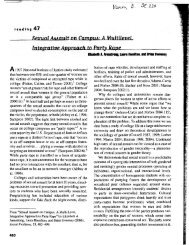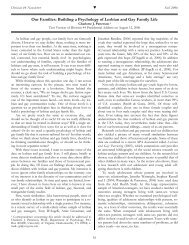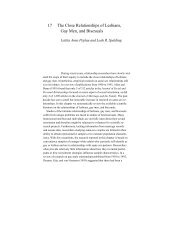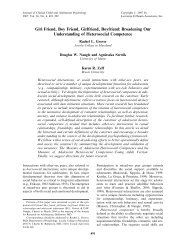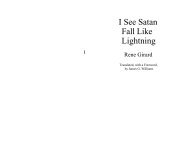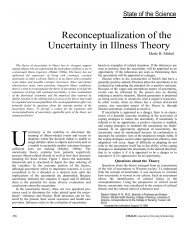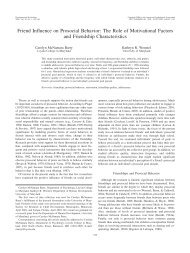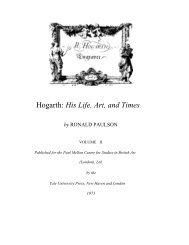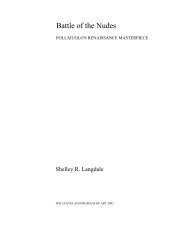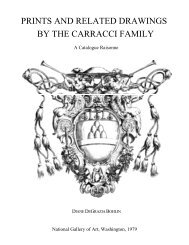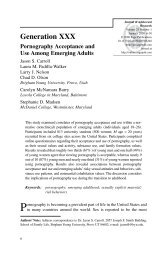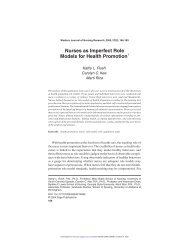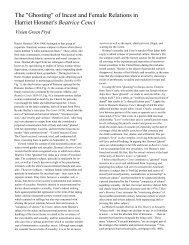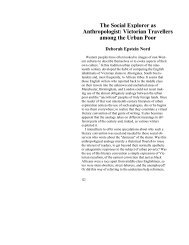The dissertation of Kelley, IHM, MS_________________ entitled ...
The dissertation of Kelley, IHM, MS_________________ entitled ...
The dissertation of Kelley, IHM, MS_________________ entitled ...
Create successful ePaper yourself
Turn your PDF publications into a flip-book with our unique Google optimized e-Paper software.
Grief in Women Religious 25<br />
for EWB, and .82 to .99 for SWB. In addition, the index <strong>of</strong> internal consistency<br />
coefficient alpha, also showed high reliability across seven samples. <strong>The</strong>se results ranged<br />
from .82 to .92 for RWB, .78 to .86 for EWB, and .89 to .94 for SWB. Similarly, in the<br />
present study, the coefficient alphas for the SWB at time 1 and time 2 were .92 and .90<br />
respectively.<br />
Additionally, Bufford et al. (1991) found that the SWB is a valid gauge for overall<br />
well-being. <strong>The</strong> three scales are correlated positively with purpose in life and are<br />
correlated negatively with loneliness (Ellison, 1983). A ceiling effect has been reported<br />
by the authors in some religious samples (Hill & Hood, 1999). This measure, however, is<br />
sensitive at the low end and research suggests that it may be a useful instrument to assess<br />
those experiencing spiritual distress or lack <strong>of</strong> well-being (Hill & Hood, 1999).<br />
A pilot study was performed in March 2003 to determine if the SWB scale would<br />
be an effective measure to use with women religious. Twenty members <strong>of</strong> two women<br />
religious congregations living in Maryland and Pennsylvania took part in this study.<br />
None <strong>of</strong> these women participated in this present study. It was hypothesized that scores<br />
on the modified version <strong>of</strong> the scale (see Appendix E) would show significantly more<br />
variability than would scores on the original version <strong>of</strong> the scale. <strong>The</strong> modified scale<br />
ranged from 0 to 100 instead <strong>of</strong> 0 to 5. <strong>The</strong> reason, for the modification, was concern<br />
that the range <strong>of</strong> 0 to 5 would not show enough variability in such a highly spiritual<br />
group. Findings show a mean <strong>of</strong> 1841.90 and a standard deviation <strong>of</strong> 143.61 for the<br />
modified version. For the original version, a mean <strong>of</strong> 108.35 and standard deviation <strong>of</strong><br />
10.69 was found. <strong>The</strong> maximum score on the original scale is 120, and the maximum<br />
score on the modified scale was 2000. Three women religious reported the maximum



